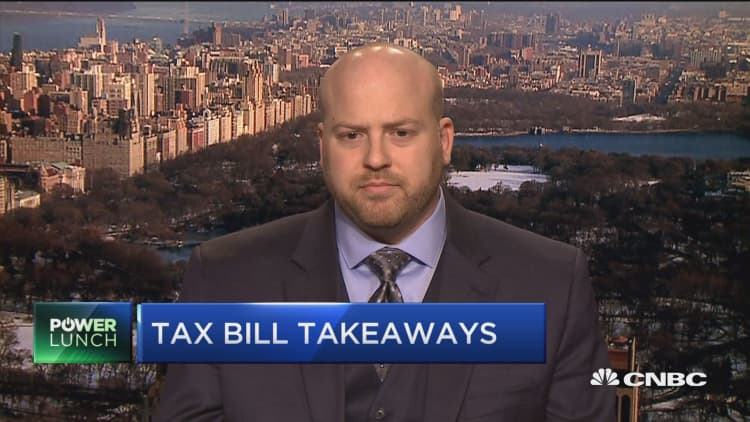Parents who double as their children's teacher would get to use money in 529 savings plans for their home-schooling expenses, under legislation recently introduced in Congress.
Two new measures would allow 529 plan withdrawals to pay for home-schooling expenses. Although the Tax Cuts and Jobs Act expanded what educational expenses can be paid for with these accounts by including private-school tuition, an amendment to extend the change to home-schooling expenses was axed at the last minute, after Democrats successfully challenged it for violating Senate rules.
"Our [new] legislation will make sure home-school families have the same opportunities and resources that every other student has," Rep. Luke Messer, R-Ind., said in a statement regarding H.R. 4862. He introduced the bill late last week.
Messer's bill would let families use the money to cover home-schooling expenses such as curriculum and materials, books, education therapies for students with special needs, and tuition for tutoring or classes outside the home.
Why parents choose to home-school their kids
| Concern about environment at other schools | 34% |
| Dissatisfaction with academic instruction at other schools | 17% |
| Desire to provide religious instruction | 16% |
| Other reasons | 11% |
| Child has special needs | 6% |
| Child has physical or mental health problem | 6% |
| Desire to provide nontraditional approach to child's education | 6% |
| Desire to provide moral instruction | 5% |
Source: Source: National Center for Education Statistics, 2016 survey. % does not equal 100 due to rounding
The measure comes on the heels of H.R. 4736, introduced earlier in January by Rep. Jason Smith, R-Mo. Since then, Smith's bill — which is essentially identical to Messer's — has picked up 12 Republican co-sponsors.
Until this year, money in 529 accounts — which offer tax-free growth on investments and tax-free withdrawals for qualified education costs — were only allowed to go toward post-high-school education. Another tax benefit is that contributions to 529 accounts sometimes can be tax deductible at the state level.
The provision in the tax bill that expanded the use of these accounts allows up to $10,000 annually to go toward costs associated with tuition for elementary through high school at "public, private or religious school" beginning this year.
* Statistically adjusted. Source: National Center for Education Statistics
From the perspective of parents who teach their children, the costs involved in home schooling differ little from those for private-school students (although home schooling typically costs less). Basically, both groups of people pay for public schools through their state and local taxes but choose to use alternative ways of educating their children.
"The bottom line is that [we] would welcome home-schoolers being given a much-deserved tax break," said J. Allen Weston, executive director of the National Home School Association.
He added, however, that he would oppose any tax break if it came with strings attached — i.e., new rules or regulations imposed on home-schoolers.

It's possible that even without the House bills, some home-schooling costs could be covered under the tax bill's new definition of qualified education expenses for 529 plans — such as tuition paid to a private school for home-schooling curriculum. Home-schooling families should talk with their accountant and financial advisor to assess that possibility.
In 2016, about 1.7 million U.S. children were home-schooled, representing about 3.3 percent of all school-age children, according to the National Center for Education Statistics. That number is down from about 1.8 million in 2012.
More from Your Money, Your Future:
One key tax date you want to keep in mind this year
This risk can dissolve your retirement savings by $97,000 each year
Picking the best 529 plan: You're probably doing it wrong






